Final Southern Right Whale Aerial Survey 2022 - Up...
On the 6th of October, the Mammal Research Institute took to the skies and flew the coastal stretch from Dange...
 The Whale Unit
The Whale Unit
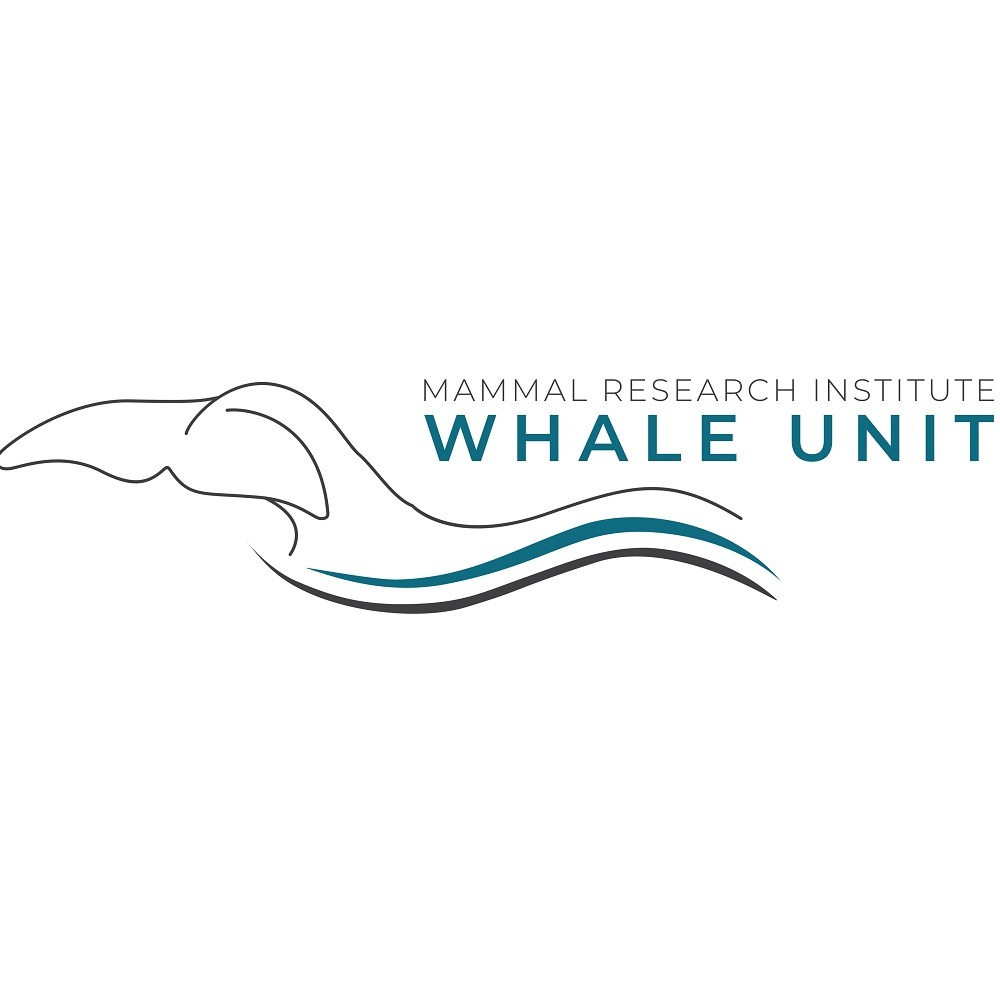
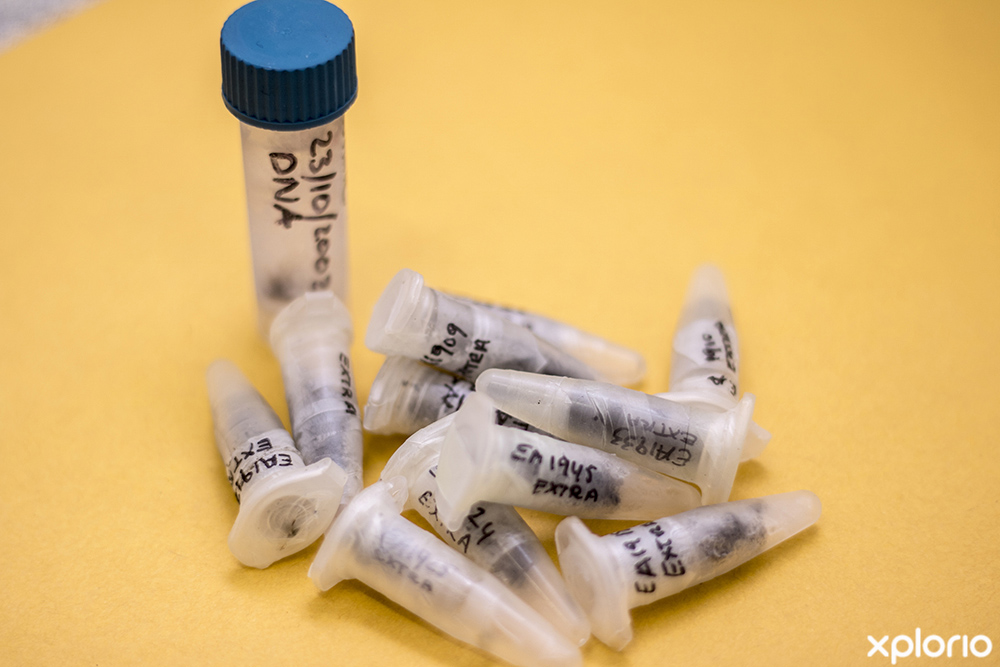
Established in 1985, the MRI Whale Unit is a global, African research, conservation and education facility that researches the ecology, population dynamics and behaviour of the diverse cetaceans (whales, dolphins and porpoises) in the Southern African sub-region and surrounding oceans, with the principal objective of providing knowledge that will promote their conservation. A primary raison d'être of the Unit remains the development of human capacity in these areas. Research, Conservation and Education are interlinked to execute forward-looking programmes, integral for the understanding of conservation priorities for African cetaceans.
The MRI Whale Unit possesses a wealth of expertise and tacit knowledge, intellectual property, and well-established knowledge resource bases. The Unit has current national and international collaborations with over 30 organisations, and co-leads the research theme on southern right whales of the Southern Ocean Research Partnership of the International Whaling Commission (iwc.int/sorp).
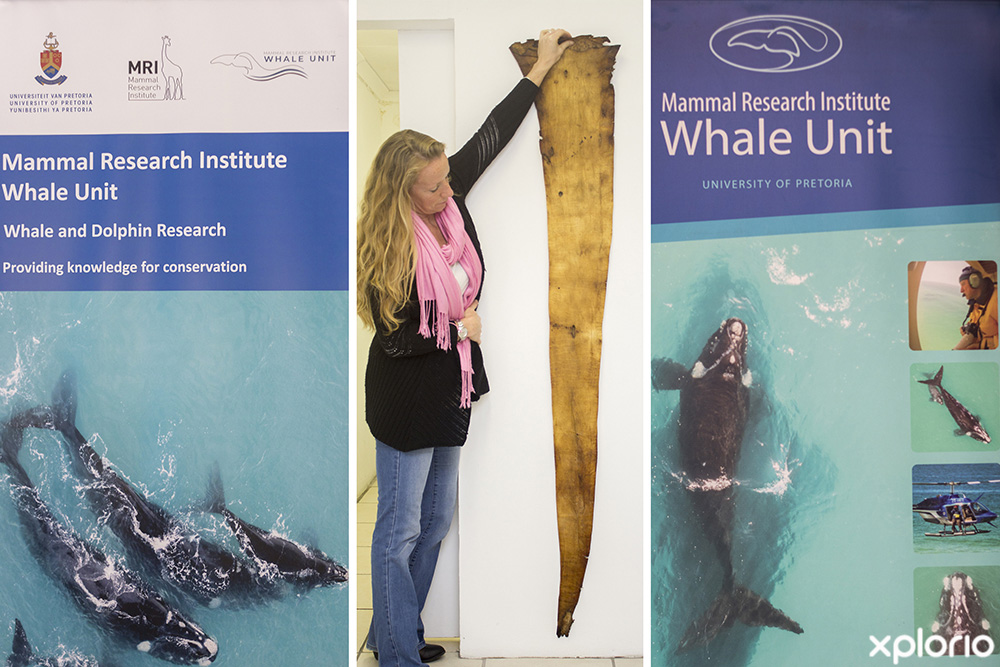
Founded in 1966, the University of Pretoria’s Mammal Research Institute, in the Faculty of Natural and Agricultural Sciences, is the premier entity for African mammalian research on the African continent. It is pan-African in its research and training, with activities extending across southern and central Africa to West Africa, Ethiopia and the Southern Ocean. In addition, international collaborations exist on all continents.
The University of Pretoria (UP) is one of Africa’s top universities and the largest contact university in South Africa. We produce socially impactful research to find solutions for the world’s most pressing issues. We have a high quality of teaching and learning in the classroom, online, or in communities. We have support in place for our students to graduate on time as well-rounded, responsible citizens fully prepared for the world beyond university.
Dr Els Vermeulen
Chris Wilkinson
MRI Whale Unit Publications
The MRI Whale Unit possesses a wealth of expertise and tacit knowledge, intellectual property, and well-established knowledge resource bases. The unit’s productivity is high, and since its inception, has produced:
The Whale Unit leads ongoing research projects that include:
Large Migratory Whale Population Abundances and Trends
Southern right whale population abundance and trends
East and West coast humpback whale abundance
Bryde's whale population abundance
Acoustic monitoring of seasonal presence and abundance of baleen whales on historical whaling grounds
Large Whale Feeding Ecology
West coast humpback feeding ecology
Southern right whales as a model species to predict the effects of climate change on Southern Ocean productivity
Southern right whale body condition on the South African breeding ground
Bryde's whale foraging ecology
African East Coast and Western Indian Ocean
Establishing movement links of humpback whales between SA and Mozambique, Madagascar and the Western Indian ocean archipelago breeding grounds
Monitoring occurrence of southern right whales in Mozambique and links between SA and Mozambique
Based on survey data provided by the MRI Whale Unit, the South African population of southern right whales is estimated at just over 6,100 and it is increasing by 6.5% per year.
Interesting Facts about Southern Right Whales
To obtain much-needed funds for research, the Whale Unit offers you the chance at symbolic adoptions of some of the best-loved southern right whales that visit the South African coastline.
Co-Adoption (chosen amount)
Includes:
Full adoption (R24,000 per year)
Includes:
Meet the Family
Blanca is one of the very few brindle females in the South African southern right whale population and because 94% of brindles are male, her unique colouring makes her a rarity. Being brindle means she was born white and is turning increasingly grey with age. Blanca was first seen with a brindle calf in 1984 and has since had nine more calves. There’s a gap in her calving history that indicates that she may have had a miscarriage late in her 2015 pregnancy, or that her calf died soon after birth.
Blanca’s favourite cruising spots along the South African coast are Arniston, De Hoop, Klipkoppie, Koppie Alleen, St Sebastian Bay and Struisbaai.
Find out more about adopting Blanca, here.
Emma is proud to be an Overstrand local. Her partial-grey colouring with stunning white blaze markings makes her visually distinctive from other southern right whales. Since she was first seen with a calf in 1983, Emma has had at least ten more calves. Some of these calves have inherited her colouring and markings and will in turn pass them down the family tree. Some of her calves are now adults, which means Emma is a grandmother, or possibly even a great-grandmother.
Emma’s favourite cruising spots along the South African coast are Agulhas, De Hoop, Quoin Point, Rooiels and Walker Bay.
Ghost is the only male in the adoption programme. He has a distinctive ghost-like white blaze on his back which is how he got his name. True to form, Ghost isn’t often seen along the South African coast and since his birth has only been seen five times by the research team. His elusiveness doesn’t mean he’s not visiting. Being a male, it’s most likely he heads back south ahead of the females. Nonetheless, Ghost stands out, so when he’s around he will almost certainly be spotted.
Ghost’s favourite cruising spots along the South African coast are De Hoop and Walker Bay.
Find out more about adopting Ghost, here.
Granny is the most senior whale in the adoption programme and is estimated to be over 50 years of age. She has birthed ten calves since 1981 which indicates that she’s healthy and strong. Granny is also the mother of V who has since become a mother herself. On two occasions Granny was seen with a new calf in the same area as V and her calf. This means that she was swimming with two of her daughters and her grandchild at the same time.
Granny’s favourite cruising spots along the South African coast are De Hoop, St Sebastian Bay and Walker Bay.
Find out more about adopting Granny, here.
Fluke was first seen with a calf in Walker Bay. She has since gone on to have another two calves. Besides the unique callosity pattern on her head, Fluke is also easy to recognize by the shape of her tail which is missing both tail points. It is unsure what caused this, but it could be related to a shark or killer whale attack. Fortunately, her missing tail points don’t affect her mobility or chances of survival.
Fluke’s favourite cruising spots along the South African coast are De Hoop, Walker Bay and Struisbaai.
Find out more about adopting Fluke, here.
Lucca is a partial-grey female with a beautiful colour pattern on her back which was white when she was born. She has at least eight siblings from the same mother. She was seen for the first time with a beautiful brindle male calf in 1999. Since then, Lucca has had five more calves at regular intervals which indicates that she is a healthy female.
Lucca’s favourite cruising spots along the South African coast are Arniston, De Hoop, Franskraal, St Helena Bay, Struisbaai and Walker Bay.
Find out more about adopting Lucca, here.
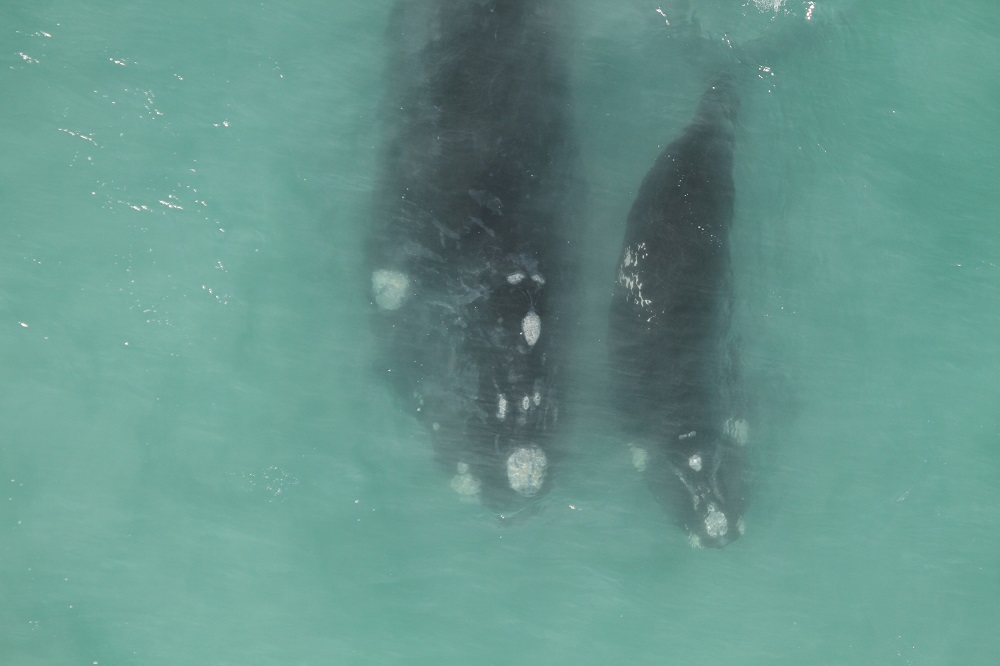
Maggie has a small grey marking on her back and is pretty unique in that she was the first female southern right whale to ever be identified in South African waters. Over the years, she’s had ten calves in various bays along the South African coast. Overall, Maggie has had normal three-year calving intervals which tell us that she is healthy.
Maggie’s favourite cruising spots along the South African coast are Arniston, De Hoop, Plettenberg Bay, St Sebastian Bay and Stilbaai.
Find out more about adopting Maggie, here.
Splash is V’s granddaughter and Granny’s great-granddaughter! She was first seen with her mother very soon after being born in 1995. Apart from her callosity pattern, she is recognizable from a grey marking on her back which was white when she was born. Splash had her first calf in 2007 and has since gone on to have another two babies.
Splash’s favourite cruising spots along the South African coast are Arniston, De Hoop and St Sebastian Bay.
Find out more about adopting Splash, here.
Thembe is the daughter of the third southern right whale to be identified in South African waters. She has a beautiful colouration pattern which includes extra white blazes against her partial-grey colour. Thembe had her first calf when she was only six years old and then wasn’t seen with another for eight years. This suggests she may have had at least one miscarriage or a delayed pregnancy, which is not surprising given her young age. She has since had four calves, indicating she is healthy.
Thembe’s favourite cruising spots along the South African coast are De Hoop and Walker Bay.
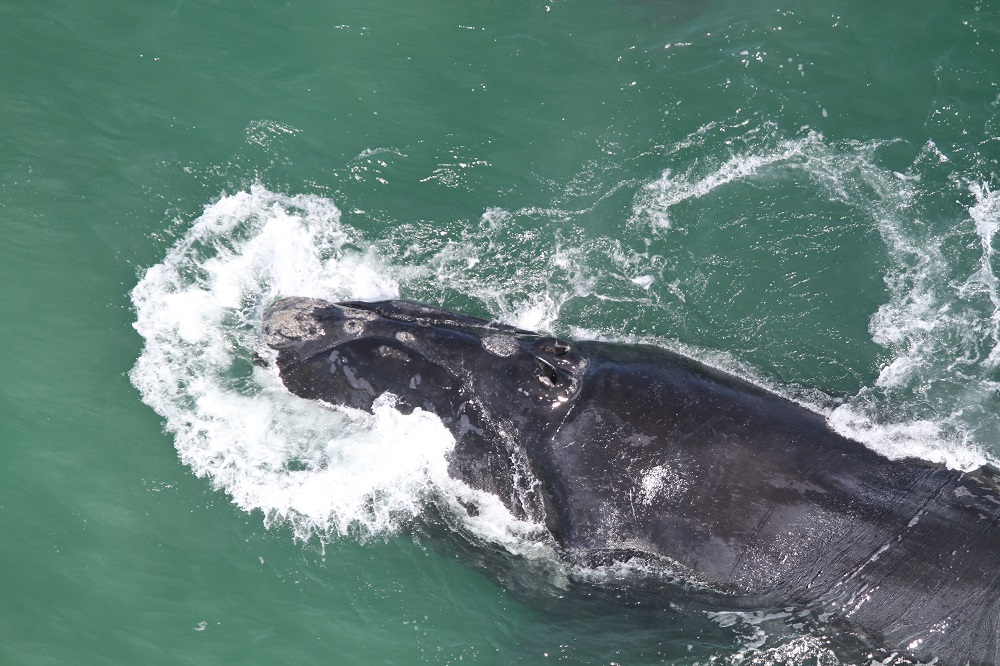
V is Granny’s daughter and was first seen soon after her birth in 1981. She has a very distinctive V-shaped patch on her back which was white when she was born but turned grey as she matured. V had her first calf in 1987 and has had six more since then.
V’s favourite cruising spots along the South African coast are Arniston, De Hoop and St Sebastian Bay.
Find out more about adopting V, here.
For more information about the Adopt-a-Whale programme email: info@adoptawhale.co.za
The Whale Unit thanks you for your interest and appreciates all donations that go a long way to research oceans and the whales that live in them.
The account is directly managed by Dr Els Vermeulen.
Please donate now below:
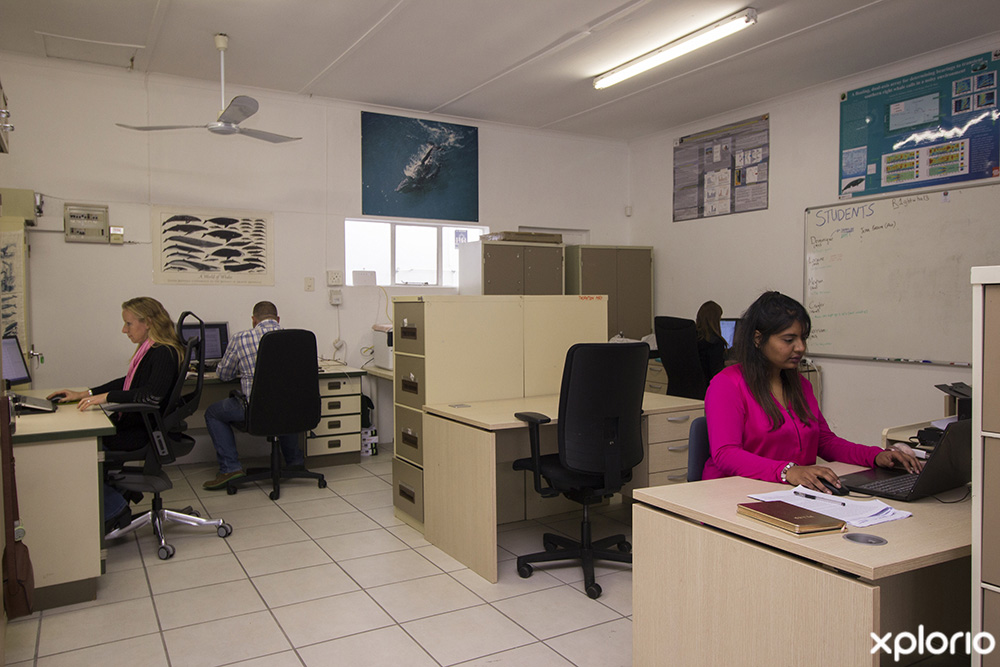
The Mammal Research Institute prides itself on being a leading provider of training for future leaders in mammal research and management.
Whale Unit offers supervision for postgraduate and honours students who will be involved in research projects that include, but are not limited to:
Interested candidates should contact Dr Els Vermeulen for more information about the selection process: els.vermeulen@up.ac.za.
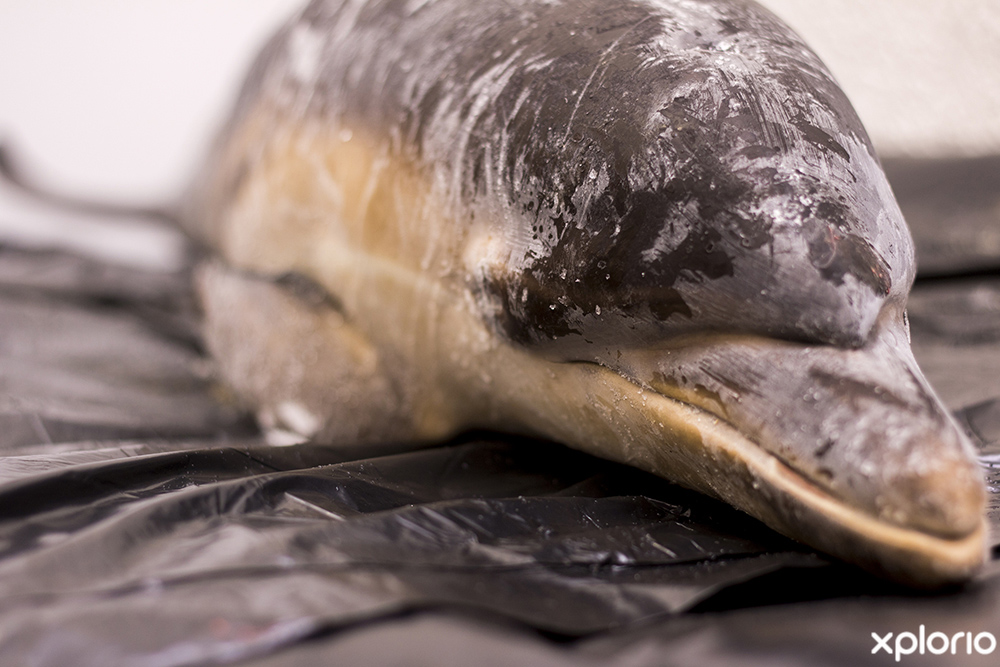
Whale Unit is a partner in the Overberg Stranding Network.
The Overberg Stranding Network is a collaborative group of organisations that ensure as much information as possible is retrieved from every stranding, live animals are refloated or euthanised if necessary, and carcasses disposed of safely if they come ashore in a built-up area.
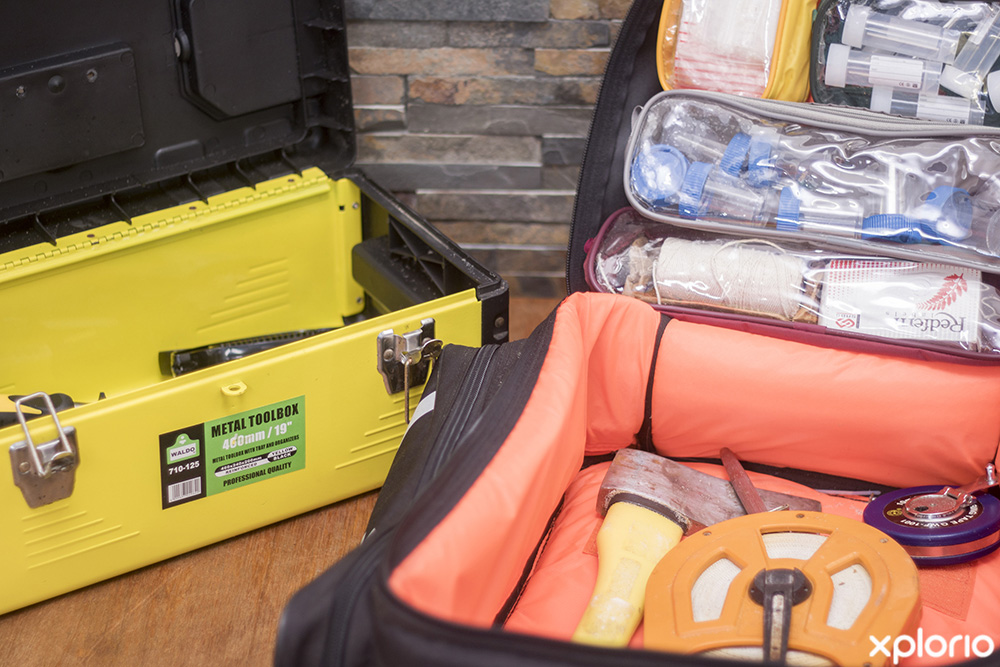
Stranding response in the Overberg area is managed by a collaborative group of organisations:
If you come across any live or dead whale or dolphin on the beach, please call 060 971-4301 for assistance.
“Excellent platform to support the research and conservation of southern right whales. The highlight of adopting Emma was receiving the in-depth adoption info pack about her milestones and movements on the South African coastline over the past 40 years.” Robin Appleby, Southern Right Charters
“Excellent work - very well done!” Percy Heywood
“The Adopt-a-Whale programme is a fantastic educational and conservational initiative. The team are extremely passionate about the causes. This is the type of programme that deserves great love and support.” Mishqua Slabbert